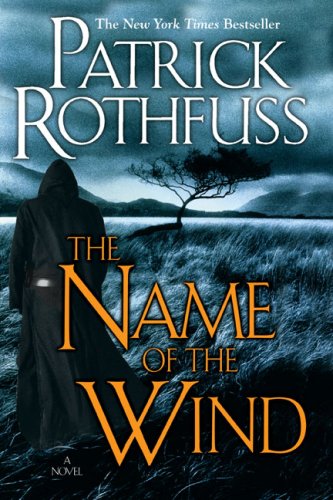All Nonfiction
- Bullying
- Books
- Academic
- Author Interviews
- Celebrity interviews
- College Articles
- College Essays
- Educator of the Year
- Heroes
- Interviews
- Memoir
- Personal Experience
- Sports
- Travel & Culture
All Opinions
- Bullying
- Current Events / Politics
- Discrimination
- Drugs / Alcohol / Smoking
- Entertainment / Celebrities
- Environment
- Love / Relationships
- Movies / Music / TV
- Pop Culture / Trends
- School / College
- Social Issues / Civics
- Spirituality / Religion
- Sports / Hobbies
All Hot Topics
- Bullying
- Community Service
- Environment
- Health
- Letters to the Editor
- Pride & Prejudice
- What Matters
- Back
Summer Guide
- Program Links
- Program Reviews
- Back
College Guide
- College Links
- College Reviews
- College Essays
- College Articles
- Back
The Wise Man's Fear by Patrick Rothfuss
As he recalls his past, you can find out all about the young man Kvothe’s exhilarating life. A sequel to The Name of the Wind, The Wise Man’s Fear is Patrick Rothfuss’ continuation of his hero’s escapades defeating demons and learning magic at the University. In The Name of the Wind the reader meets Kvothe, just a child then, who travels around the mythical lands with his family’s caravan. A wise arcanist, or magician, tutors young Kvothe and finds out that he has incredible potential. When tragedy strikes Kvothe struggles to make ends meet and finally makes his way to the University, where the most intelligent of the land gather to be taught magic. Despite being too young Kvothe impresses the administration and is admitted to the University. Kovthe’s many adventures continue into the second book of the trilogy, an even more exciting, The Wise Man’s Fear.
Unlike many portrayals of magic in the media today, Rothfuss describes a magic that can be taught to anyone. You don’t have to be born with the ability to do magic, you just have to be intelligent enough to learn it. With this new and unfamiliar kind of magic The Wise Man’s Fear is thoroughly confusing, though it is much easier to understand after reading The Name of the Wind. Along with the usual keeping track of characters and plot lines you encounter in any book, you have to figure out how the world works and what made up names mean. For example, the currency is in talents and jots. Why these unfamiliar words? One can assume it is to make the world in the book as different from our world as possible. A complete fantasy, the world takes a lot of figuring out, which is why I enjoyed The Wise Man’s Fear more than its predecessor.
The Wise Man’s Fear’s best attributes are its characters. Unlike the world the book is set in, the characters are relatable. Kvothe, the hero, has a plethora of faults. He is stubborn, often naïve, and can have quite a temper. These are balanced well with his endless bravery, courage, and intelligence. He knows how to read people, and uses this to his advantage. Carefully using his enemy’s faults against them, he usually manages to come out on top. He puts his friends before himself. He protects his honor. But he wouldn’t be nearly as interesting without his faults. Who can relate to a perfect character?
The main female character Denna is fascinating as well. Elusive, mysterious and sneaky as a fox, she captures Kvothe’s attention, as well as everyone else’s. At the same time she is vulnerable, kind, and doesn’t take advantage of those who don’t deserve it. When reading the book I was very conflicted about her, unable to tell whether I should feel sympathy towards her. Her back-story is almost as elusive as Denna herself, coming out only in the brief vulnerable moments the character has. I assume everyone has a different opinion about her, and you’ll just have to form your own.
Like most fantasy, books The Wise Man’s Fear is not as filled with imagery or metaphors as, for example, The Scarlet Letter, which you may have had to read for school. It does however have an intriguing plot that won’t let you put the book down once you’ve started it. With complicated characters, Kvothe’s wild adventures facing demons, quotes like “The point is to be bold. To be dangerous. Be elegant.” and even some romance The Wise Man’s Fear will leave you wishing Rothfuss would write faster so you could read the next one.
Similar Articles
JOIN THE DISCUSSION
This article has 0 comments.

